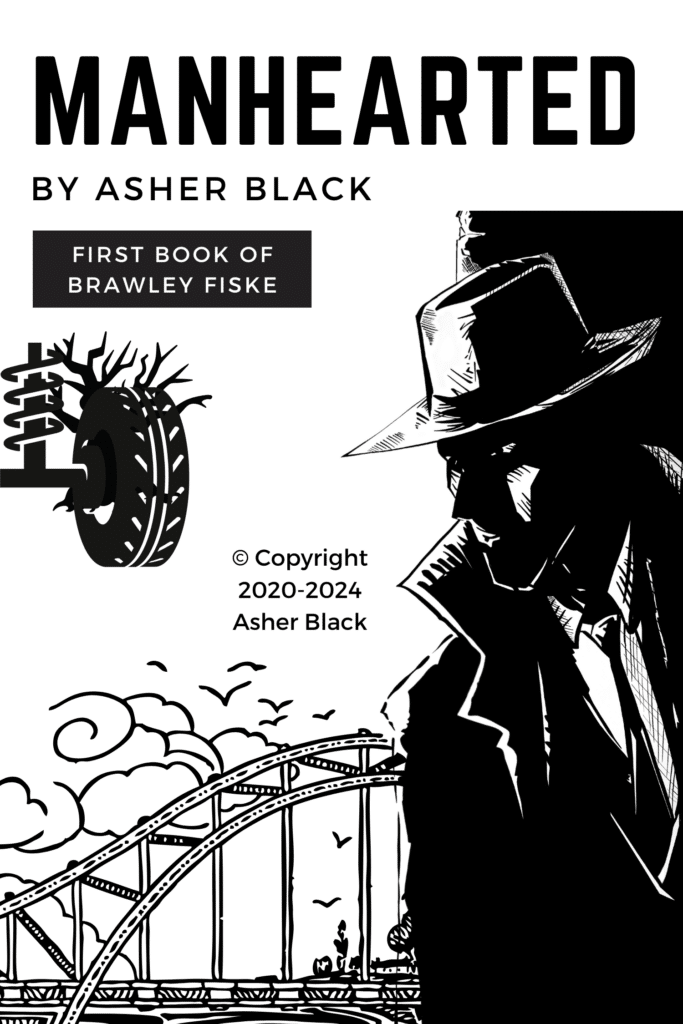
About MANHEARTED™
Brawley Fiske is the surviving member of Milo Frayne's team from their days in the military and civilian intelligence. Milo (Hardcase Investigations) got out amid the moral ambiguity of the Cold War, but Brawley stayed in, and the result was a target on his back when the Central American operations shut down.
Manhearted is the first adventure novel of Brawley Fiske. Manhearted ™ refers to the character persona of Brawley Fiske, a creation of author Asher Black. Contact the author for more details.
CONTACT INFO: Asher@Manhearted.com